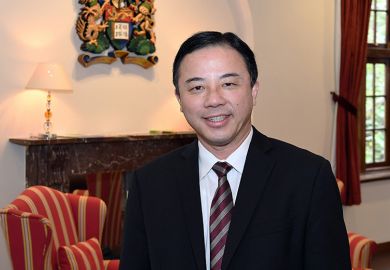Source: Marcus Butt
It is important to have clarity and predictability of processes, and an acceptance that these are fair and inclusive
A few years ago I was asked to advise a university on its decision- making processes. This is always an interesting challenge because universities are extraordinarily complex bodies. Initially, I asked 10 people to explain to me where and how decisions were taken in the institution. No two of them gave the same answer. The one common thread, however, was that wherever it was that matters were decided, they weren’t there.
So I asked someone to draw up a flow chart of the university’s decision- making. What I found was that there was reasonable clarity about various formal processes (for example, the introduction of a new course) but what I would describe as “complex vagueness” when the issue was one of strategic positioning.
I noticed one other thing at this university. Nearly all the reports, minutes and other committee documentation were, on each page, headed with the word “Restricted”. I wondered what this meant, but nobody could tell me with confidence. There was just an assumption that all this stuff was, at some level, confidential. It was not clear to whom it was confidential (these papers were being widely distributed), or why. However, when I suggested that it might be an idea to remove this word from the university’s general documentation, everyone was hesitant. This experience came to mind when reading last week’s Times Higher Education feature about how transparent universities are, and should be, about their day-to-day business (“Show and tell”, 4 April).
Of course I am not suggesting that, in a university, nothing is confidential; lots of things are, either because they relate to named individuals and their personal circumstances, or because there is a competition angle, or because external partners’ commercial interests are involved, and so forth. But equally we can be sure that not everything is confidential, and so the onus to justify their position needs to be on those suggesting that access be restricted.
In fact, most things happen in universities in such a way that this isn’t usually an issue. The problems arise when there are difficult decisions to be taken, particularly about staffing and resources. At such moments it is important to have clarity and predictability of processes, and an acceptance that these are fair and inclusive to the most appropriate degree. And it is imperative that the factors that contributed to a decision are known and understood.
I would argue that for a university to be successful in its planning and decision-making, it needs to be competent in the following four areas: communication, consultation, clarity and openness. None of these is straightforward. For example, communication is not about “telling”, it is about exchanging views in a two-way process. Consultation should not be (but often is) undertaken in the sense used by medical consultants: “first I’m going to tell you what’s wrong with you, and then I’m going to tell you what we’re going to do about it”. Clarity requires a degree of predictability of method; without, however, the fixation on avoiding precedent characteristic of many universities. And openness is about avoiding the constant search for reasons why something should not be disclosed.
Nevertheless, it is also fair to point out that universities have access to and hold a lot of sensitive information, and have complex strategic requirements. So decision-making needs to be efficient as well as open, and there has to be a capacity to address issues decisively.
For many of the reasons set out here, it is easy to agree that the principle of freedom of information (FOI) should apply to higher education institutions. And yet I sometimes wonder how this is working out in practice. Some universities (my own included) get dozens of requests for information that cannot be easily assembled without substantial cost and which, when assembled, provides little of any value.
Sometimes FOI requests are made by commercial organisations seeking an advantage in doing business with the university, forcing it to spend money on assembling data to assist the potential contractor’s profitability. While I am wholly committed to the principle of FOI, I suspect that universities should be allowed to charge a realistic fee representing the real cost of meeting an FOI request.
Universities should not be mysterious, opaque, secretive organisations. The higher education mission of extending knowledge, insight and scholarship, of innovation, enterprise and renewal, is at the heart of a successful society.
Universities in the UK perform this role extremely well, but they also need to ensure that the mission is accomplished with the support of their enthusiastic, informed, committed and involved communities. That is a goal worth pursuing.
Register to continue
Why register?
- Registration is free and only takes a moment
- Once registered, you can read 3 articles a month
- Sign up for our newsletter
Subscribe
Or subscribe for unlimited access to:
- Unlimited access to news, views, insights & reviews
- Digital editions
- Digital access to THE’s university and college rankings analysis
Already registered or a current subscriber? Login




